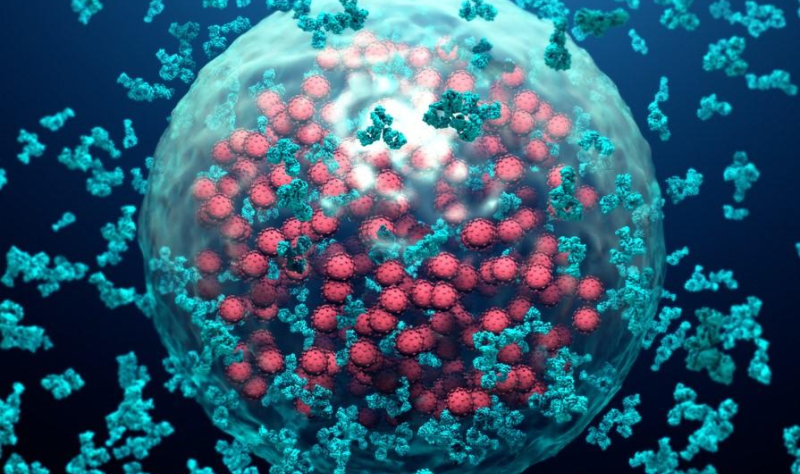COVID-19 infection, even mild cases, can cause significant long-term changes in the immune system that may be linked to long COVID, a new observational study concludes. study The findings were published by researchers at the Medical University of Vienna (MUV). allergy.
The researchers assessed the number and composition of cellular and humoral immune parameters (immune cells, cytokines, and growth factors) in the blood of 106 COVID-19 survivors 10 months after infection, during the period when wild-type virus predominated, from May to August 2020. The team also measured levels of antibodies against the SARS-CoV-2 spike protein (S), receptor-binding domain (RBD), and nucleocapsid protein.
The results were compared with those of 98 matched uninfected participants. Because a COVID-19 vaccine was not yet available, none of the participants had been vaccinated, and the COVID-19 group had not been reinfected from study enrollment to the end of 10 months of follow-up.
The team previously Researched When the impact of COVID-19 on the immune system was examined in the same cohort 10 weeks after infection, long-lasting effects were seen even in patients with mild symptoms. “Not unexpectedly, 10 weeks after infection, convalescent patients showed clear signs of immune activation in both T and B cells, in contrast to healthy subjects,” MUV senior author Winfried Pickle, MD, said in the university’s announcement. news release.
Decrease in immune cells, SARS-CoV-2 antibodies
Cytokines and growth factors in the blood were characteristic of remnants of acute inflammation 10 weeks after infection, and compared with patient samples taken 10 months later, there was a significant reduction in immune cells, reduced SARS-CoV-2 antibodies, and altered growth factor patterns.
The researchers found a significant decline in adaptive immune cells, including T cells and B cells, at 10 months, but not the activation and proliferation of certain effector memory cells, transitional B cells, and immature B cells called plasmablasts.
Serum interleukin-4 (IL-4) levels were also significantly elevated in COVID-19 survivors, as were moderately elevated IL-5 concentrations.Interferon-gamma levels were similar to literature values in controls and COVID-19 survivors at 10 weeks, but were significantly decreased after 10 months.
S- and RBD-specific immunoglobulin G antibodies were undetectable in approximately 18% and more than 80% of the COVID-19 cohort after 10 weeks and 10 months, respectively. Moreover, more than 90% of patients lacked neutralizing antibody activity after 10 weeks.[months]”This suggests that the majority of study participants lost protection against reinfection after their initial infection,” the researchers wrote.
A damaged cellular immune system
The researchers said the finding indicates that survivors’ immune systems are not responding properly to pathogens and may explain some of the signs and symptoms of long COVID. They added that long COVID is thought to be caused by long-term impairment of the function of bone marrow, the main producer of immune cells.
Our findings provide an explanation that certain symptoms of long-term COVID-19 may be associated with damage to the cellular immune system by SARS-CoV-2.
“Our findings provide an explanation that certain symptoms of long COVID-19 may be related to the damage of the cellular immune system by SARS-CoV-2,” the researchers concluded. “This hypothesis can now be investigated in detail in appropriate study populations and may contribute to the understanding of the pathomechanisms underlying long COVID-19.”


